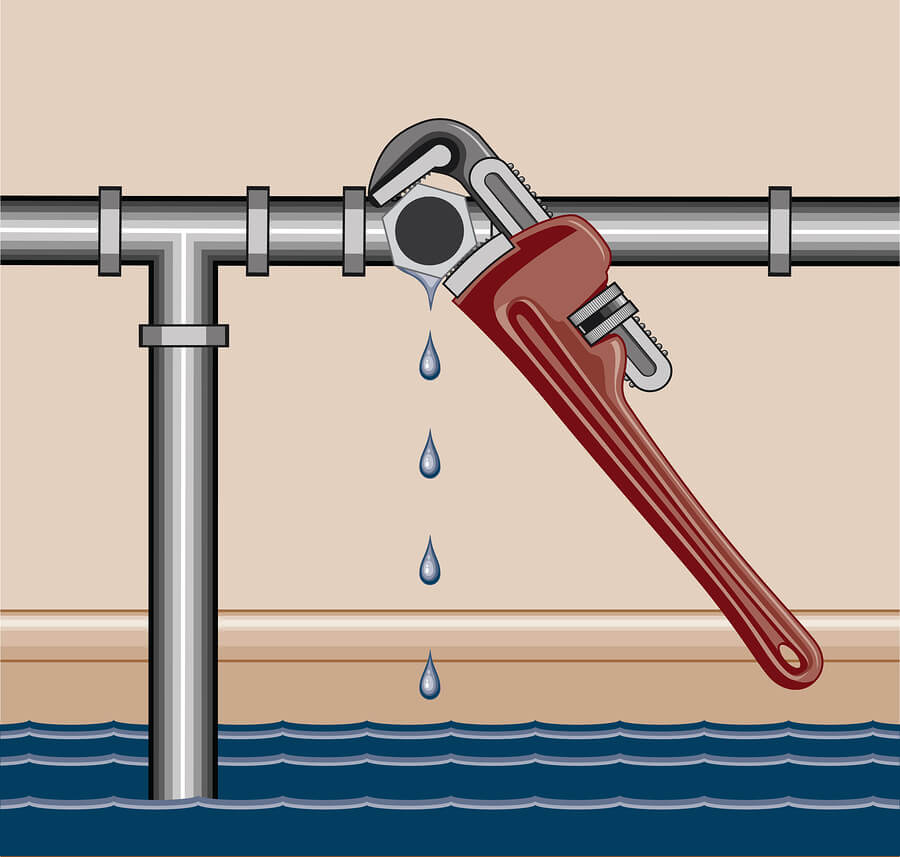We have come across the article about How to detect water leaks in your home listed below on the web and think it made good sense to discuss it with you in this article.

Leakages not just create waste of water yet can also create unneeded damage to your residence and also promote unwanted natural development. By understanding and also looking for daily scenarios that trigger leaks, you can secure your home from future leakages and also unnecessary damages.
Instant temperature level modifications.
Severe temperature adjustments in our pipelines can trigger them to increase as well as get suddenly. This development as well as tightening may trigger splits in the pipes, specifically if the temperature are below freezing. If you kept an eye on exactly how your plumbing functions, it would be best. The existence of the formerly discussed conditions frequently suggests a high threat.
Rusty water supply
As time passes by, your plumbing system ages as well as corrosion such as corrosion may start eating away the pipelines. This could be the reason for discoloration or warping on your pipes. This calls for an assessment with your plumber immediately. If our plumbing system is old, think about changing the pipes given that they go to a higher risk of rust than the more recent versions.
Malfunctioning Pipeline Joints
The point at which your pipes connect is often the weakest link in the waterline. Pipe joints can degrade gradually, causing water leakages. The majority of pipe joints are not easily visible. If you have loud pipelines that make ticking or banging noises, especially when the warm water is activated, your pipe joints are possibly under a lot of stress. It is recommended to have your plumber evaluate your system once a year.
Intruding roots
Many water leaks begin outside the house as opposed to inside it. If you observe an unexpected decrease in water pressure, claim in your faucet, take some time to go out and also analyze your lawn. You might see wet patches or sinkholes in your backyard, which may imply that tree roots are attacking water lines creating water to permeate out. You can have your plumber look for invasion, especially if you have trees or hedges near your property.
Poor Water Connectors
At times, a leakage can be caused by loosened hoses as well as pipelines that provide your devices. In situation of a water links leak, you may see water running directly from the supply line or pools around your home appliances.
Obstructed Drains
Clogged drains pipes could be bothersome and also inconveniencing, but they can often end up creating an overflow leading to rupture pipelines. Keep eliminating any kind of products that might drop your drains that might obstruct them to avoid such hassles.
All the above are sources of leakages however not all water leakages result from plumbing leaks; some leaks may originate from roof leaks. All leakages ought to be repaired promptly to stay clear of water damage.
Leaks not only trigger waste of water however can also trigger unneeded damages to your residence and also promote unwanted organic development. By understanding and looking for daily scenarios that create leakages, you can safeguard your house from future leakages as well as unneeded damages. Today, we will certainly look at 6 leakage creates that may be causing your pipes to drip.
At times, a leak can be triggered by loose hose pipes as well as pipes that supply your home appliances. In case of a water connections leakage, you may discover water running directly from the supply line or puddles around your home appliances.
How To Check For Water Leak In Your Home
How To Check for Leaks
The average household's leaks can account for nearly 10,000 gallons of water wasted every year and ten percent of homes have leaks that waste 90 gallons or more per day. Common types of leaks found in the home are worn toilet flappers, dripping faucets, and other leaking valves. These types of leaks are often easy to fix, requiring only a few tools and hardware that can pay for themselves in water savings. Fixing easily corrected household water leaks can save homeowners about 10 percent on their water bills.
To check for leaks in your home, you first need to determine whether you're wasting water and then identify the source of the leak. Here are some tips for finding leaks:
Take a look at your water usage during a colder month, such as January or February. If a family of four exceeds 12,000 gallons per month, there are serious leaks.
Check your water meter before and after a two-hour period when no water is being used. If the meter changes at all, you probably have a leak.
Identify toilet leaks by placing a drop of food coloring in the toilet tank. If any color shows up in the bowl after 10 minutes, you have a leak. (Be sure to flush immediately after the experiment to avoid staining the tank.)
Examine faucet gaskets and pipe fittings for any water on the outside of the pipe to check for surface leaks.
Undetected water leaks can happen without the home or business owner even realizing. If you suspect a water leak, but not able to find the source. It is time to contact a professional water leak detection service, The Leak Doctor.
How To Find a Water Leak In Your Home
https://www.leakdoctor.com/blog/How-To-Check-For-Water-Leak-In-Your-Home_AE197.html

Hopefully you enjoyed our article about Top Causes of Home Water Leaks. Thank you so much for taking the time to read our blog. If you appreciated our post if you please make sure you remember to pass it around. We cherish reading our article about Most Common Causes of Leaky Pipes.
Call Today